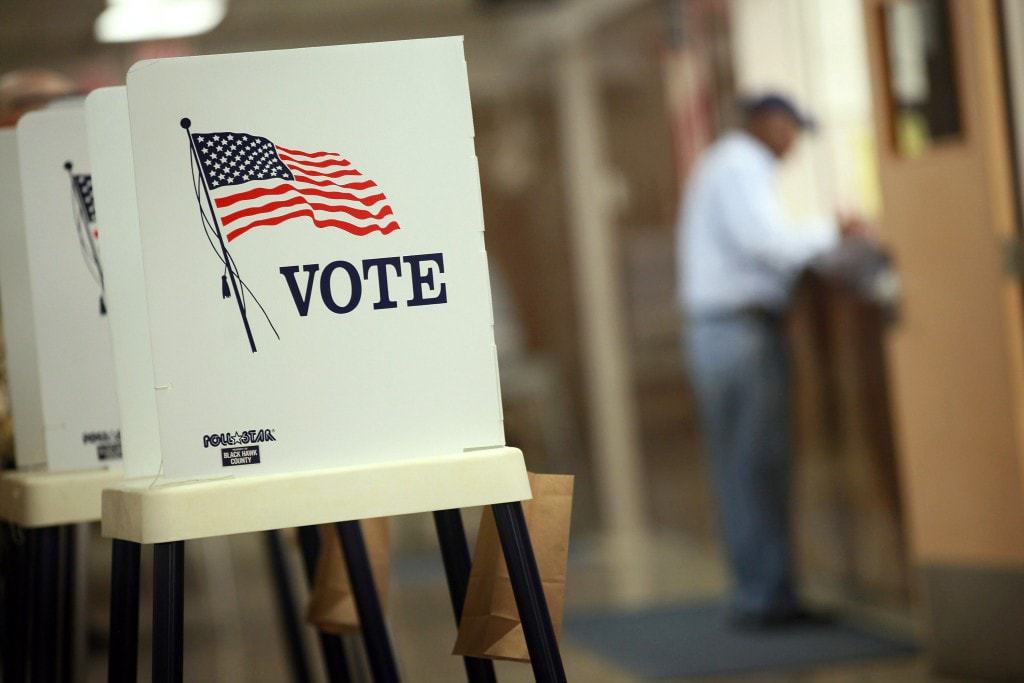Connecticut early voting faces legal challenge
The implementation of early voting, which received support from 60 percent of voters in a recent ballot measure, is being challenged by a New Britain resident.

Yale Daily News
Connecticut is one of four states that have not yet implemented early voting. The constitutional amendment planning to change that now faces a legal challenge.
In the Nov. 8 midterm election, 60.2 percent of the state’s residents approved a constitutional amendment that would allow early voting. When the Connecticut General Assembly resumes session in January, state legislators will likely begin working on implementing early voting.
But early voting now faces a court challenge. New Britain resident Noemi Soto filed a lawsuit against the state of Connecticut and the General Assembly, claiming that the state legislators did not abide by the constitutional amendment procedures.
“Most people are not going to understand because they’re just going to look at the question and be like, ‘Oh, yeah, I want early voting,’” Soto said in an interview with the CT Mirror. “They’re not seeing and they’re not going to know that ballot security measures are being essentially stolen from them constitutionally.”
According to Connecticut law, the constitutional amendment must be passed either by two-thirds of the vote or with a simple majority in two successive Connecticut General Assembly terms and then approved in a referendum.
In 2019, an early voting resolution was passed by the legislature by a simple majority, and then again in 2021. State Representative Stephanie Thomas, vice-chair of the Government Administration and Elections Committee and Secretary of the State-elect, told the News that in 2021, early voting received “good bipartisan support.”
“It had widespread support among the Democrats for sure,” said Thomas. “And also, I believe, there were about 13 Republicans who voted for it as well.”
Yet, in the lawsuit against early voting, Soto claims that the two proposals passed in 2019 and 2021 are substantially different, and thus cannot count as one continuous effort.
The lawsuit is being heard at the Connecticut Superior Court in Hartford. While the lawsuit is in court, the early voting constitutional amendment remains in effect.
“The plaintiff has not sought, and the court has not issued a stay in this case,” said Elizabeth Benton, spokeswoman for Attorney General William Tong, in an email to the News.
Benjamin Andrew Abrams and Alma Rose Nunley, assistant attorney generals, have been assigned to the case.
According to Benton, the court will hear an oral argument on the motion to dismiss the case on Dec. 14.
“States across the country have successfully implemented early voting, and we [at the Attorney General’s office] are fully confident that Connecticut’s early voting constitutional amendment will be upheld,” Benton said.
Meanwhile, Connecticut legislators look ahead to start working on early voting implementation. Recently re-elected state representative Eleni Kavros DeGraw told the News that she expects that early voting will be introduced in the coming legislative session. She said the session will be longer than usual, thus able to accommodate for the “public hearings, conversations and robust debate.”
While speaking with Connecticut residents door-to-door during campaign time, DeGraw explained that early voting will expand the voting options.
“Because you have people who work two jobs … people who have to work overnight, you have people who, for one reason or another, do not qualify for excuses on the absentee ballot,” DeGraw said. “And we don’t want [them] to make up excuses — we want them to be able to go and vote … We have to do what the people of Connecticut want and more than 60 percent voted for it.
The Assembly plans to decide the details and format of early voting in its upcoming session.
Thomas said that she spent the last several months speaking with various stakeholders and will be looking into research on early voting. She also hopes to receive a report from the outgoing Secretary of State, so that when she takes office in January, she will be “in a good position … to make some recommendations to the legislature.”
“I think it’s premature to say what [early voting] will look like because there are so many factors from the number of days … to what days of the week,” Thomas said. “There’s just a lot to look at and figure out how we can implement evenly given Connecticut’s lack of county government in terms of our election administration.”
Thomas also said that one of the main concerns is providing sufficient funding, equipment and security measures needed for towns to implement the early voting.
“I believe that if all the advocates, election workers and legislators can get on the same page in the new year, we can work towards 2024 implementation,” Thomas said.
The Connecticut General Assembly 2023 regular session will start on Jan. 4.







